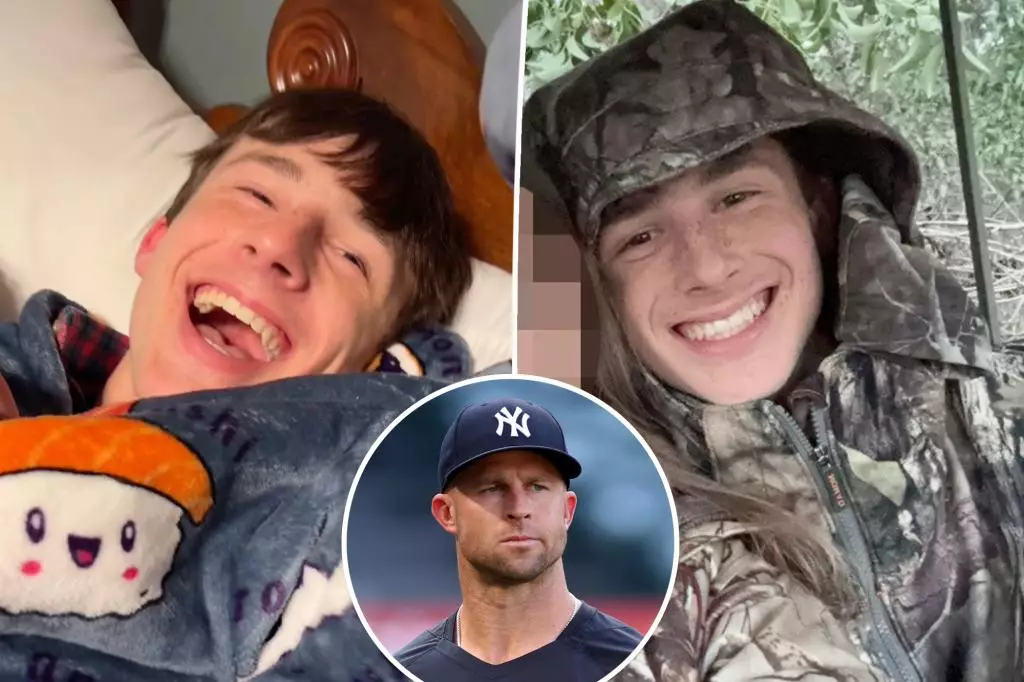The world was shaken by the tragic death of Miller Gardner, the 14-year-old son of former New York Yankees star Brett Gardner, while on vacation in Costa Rica. The news that emerged from Costa Rican authorities regarding his cause of death was nothing short of horrifying. Confirming earlier suspicions, toxicology results revealed that Miller succumbed to carbon monoxide inhalation—a senseless and preventable tragedy that has sparked outrage and concern about safety protocols in resorts worldwide.
The implications of the toxicological findings are staggering. The report indicated a carboxyhemoglobin saturation level of 64%, well beyond the lethal threshold of 50%. To put this into perspective, such a saturation implies that multiple precautionary measures failed at various levels, raising serious questions about the safety practices of hospitality establishments and the overall responsibility they hold to protect their guests.
Controversy Surrounding the Hotel’s Claims
Local authorities discovered alarming levels of carbon monoxide contamination in the Gardner family’s hotel room at the Arenas Del Mar Beachfront & Rainforest Resort. In a bizarre turn of events, the hotel initially denied responsibility for the findings, claiming that the contamination was isolated to a non-occupational mechanical room and had nothing to do with the room occupied by the Gardner family. This contradiction leaves the public questioning the credibility of the hotel’s safety measures.
It is critically important for hotels and resorts—especially in tourist-heavy regions—to maintain transparent communication about potential hazards. Instead of contriving misleading statements, a swift acknowledgment and rectification of safety shortfalls should be the priority. The echoes of Miller’s preventable death may lead to greater scrutiny of how similar facilities manage and report on their operational standards.
The Role of Emergency Response
Despite the gravity of the situation, it appears that emergency responders faced a tragic scenario with little opportunity for intervention. Dr. Kevin Gannon from Manuel Antonio Urgent Care revealed that he and his team were met with a patient who had no vital signs upon their arrival. For an urgent care team to be faced with such a lost cause is gut-wrenching, and raises the question: how many more lives could be saved if preventative measures are prioritized?
Miller’s passing was not merely an accident; it was an avoidable fatality that underscores the necessity of stringent safety regulations in places where families seek joy and respite. While it is a reality that emergencies can occur anywhere, the systemic failures surrounding this incident highlight critical gaps in preparedness and risk management that need urgent attention.
The Family’s Heartbreaking Grief
Brett and Jessica Gardner released a statement mourning their “unimaginable loss” following their son’s death. The heartbreak of losing a child is a grief that few can understand, and in this situation, it was compounded by the unexpected nature of the tragedy. The couple shared that several family members fell ill during the vacation, suggesting that the threat of carbon monoxide poisoning may have affected others as well.
This tragedy amplifies the call for change, as families should never have to experience the horrifying realities of such negligent circumstances while on vacation. In addressing safety protocols, particularly concerning air quality and the functionality of hotel amenities, the focus should be on ensuring that no family has to suffer the way the Gardners have.
A Community’s Response and Action
In the wake of this calamity, it is incumbent upon local authorities to thoroughly investigate the circumstances leading to Miller’s death. The quest for justice extends beyond the family’s personal tragedy; it is a community-wide call to action aimed at safeguarding all guests. Regulations must be revisited, and oversight mechanisms must be in place to ensure hotels are adequately equipped to detect and address potential dangers.
Moreover, guests must also become more vigilant when choosing accommodations. Knowing and understanding a property’s safety policies and past records on emergency situations could be life-saving. Education on this front can empower travelers to make better and safer choices when planning their getaways.
In this heartbreaking scenario, while nothing can bring Miller Gardner back to his family, we are reminded that awareness, education, and collective responsibility are essential to prevent such tragedies in the future.

